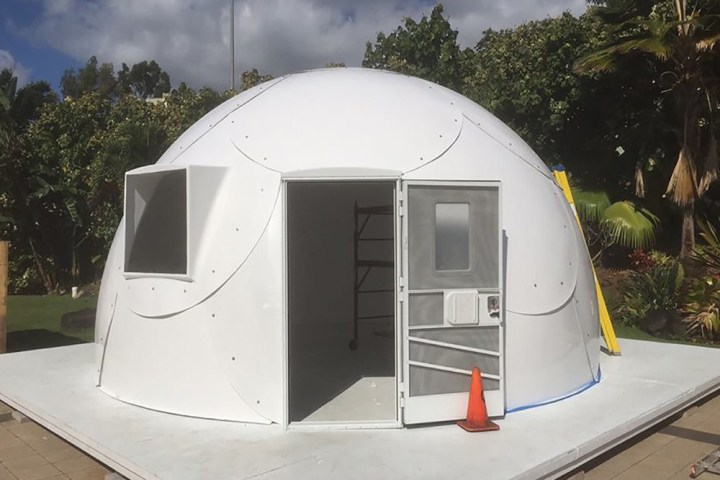
Built by an Alaskan company called InterShelter, the housings consist primarily of fiberglass (not ice) and were designed with mobility in mind, allowing the church to construct or move them as it pleases. As of now, Oahu’s First Assembly of God operates 12 such igloos, each of which offer living space for up to four people and their belongings.
Over the last several years, no state has been hit harder by a growth in homelessness than the islands of Hawaii. According to federal statistics cited by the Associated Press in November, Hawaii boasts a staggering 487 homeless people for every 100,000 residents — a rate that puts it ahead of such states as New York and Nevada, which typically have large homeless populations. This increase also contradicts a relative decline in U.S. homelessness due in part to the American economy’s recovery since 2010. So what’s to blame? Try limited land space, low pay wages, and the dramatic increase in cost of, well, everything in Hawaii.
Enter Klayton Ko, the First Assembly of God’s senior pastor and the one responsible for introducing InterShelter’s igloos as a possible homeless solution. Citing inspiration from Los Angeles’ “Dome Village” which operated from 1993 to 2006, Ko intends to use the dome structures as an immediate answer until affordable housing options become available within the state. The church constructed and currently operates its 12 igloos on land previously reserved as a cabin retreat for its members.
Made up of 21 panels that InterShelter CEO Don Kubley says “stack like Pringle potato chips and can fit in the back of a pickup truck,” each dome is roughly 20 feet wide, measures 314 square feet inside, and costs around $9,500 without a base. Furthermore, First Assembly of God Pastor Daniel Kaneshiro tells the AP that the church has raised roughly $100,000 thus far for the structures from its members and other churches, but is also looking for corporate sponsors to expand the program even more.

“It takes three things to survive: food, water, and shelter, and we are one-third of that formula,” Kubley tells Alaska Dispatch News. “I hate to sound corny, but we can really make a difference on this planet.”
Kubley isn’t alone, however, as a shipping container shelter called Hale Mauliola also recently opened on Sand Island, Honolulu. With units capable of housing one to two people, the shelter also provides communal showers and three daily meals. As of now, the igloo and shipping container initiatives have proven to temporarily quell the effect of homelessness around Hawaii but it’s unknown what exactly the lasting effect might be.



